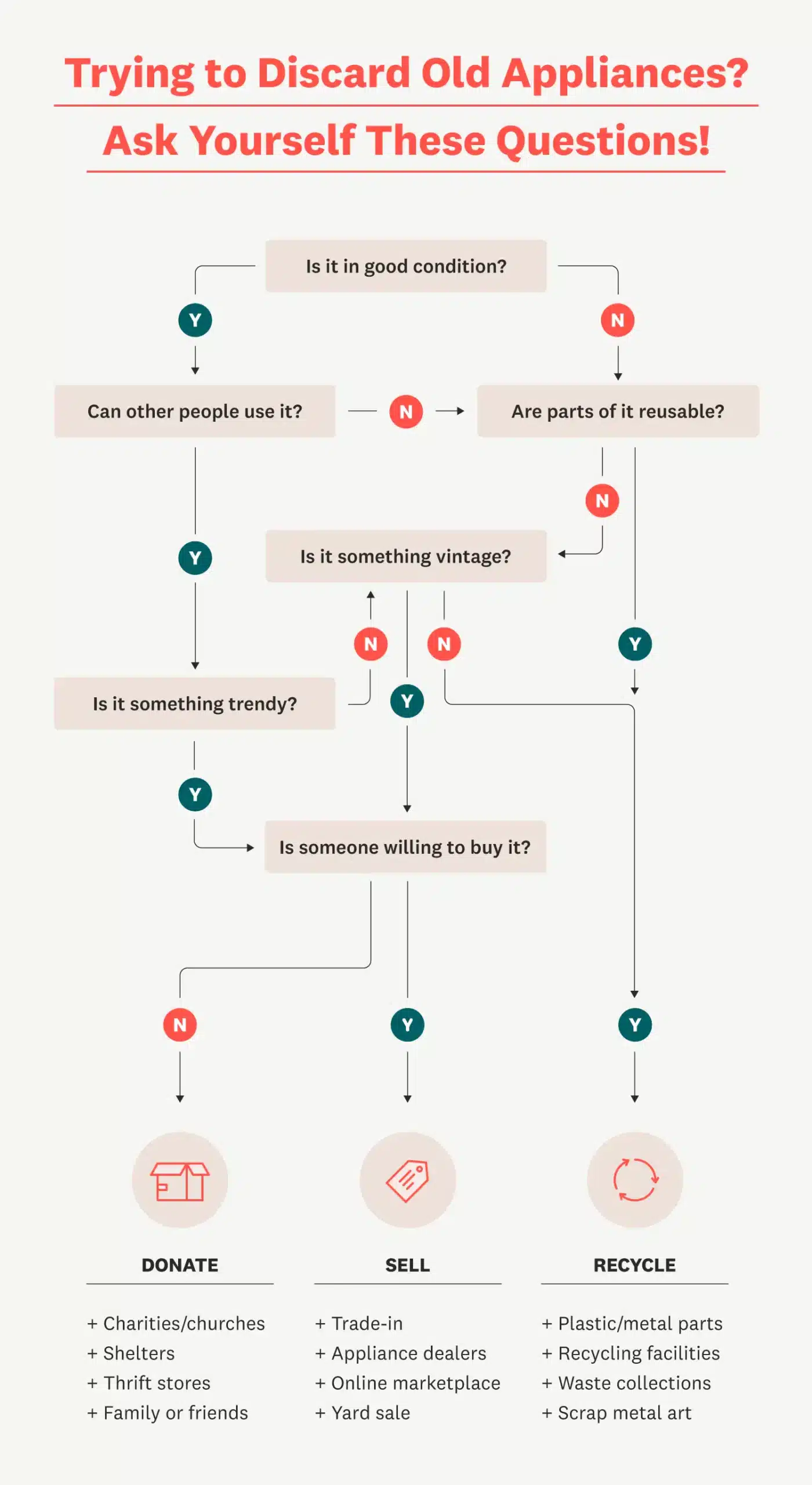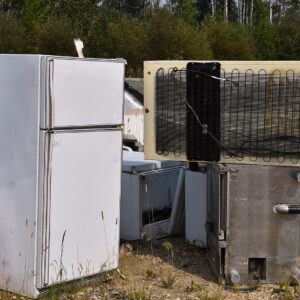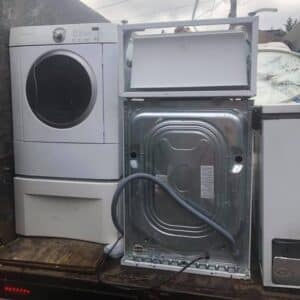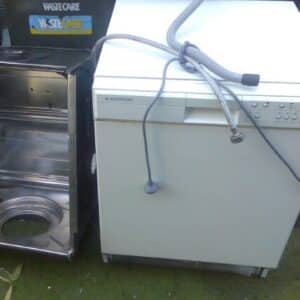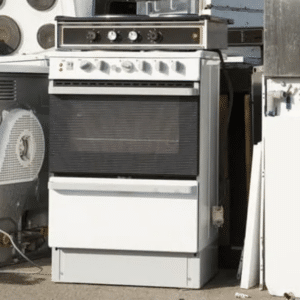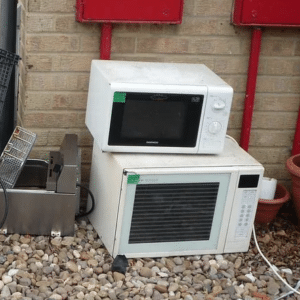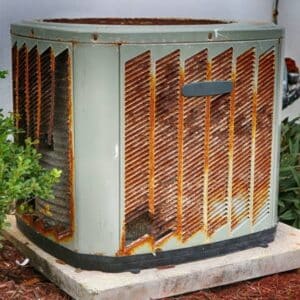How to Dispose of an Old Oven or Stove
When it’s time to replace an old oven or stove, figuring out how to dispose of the old appliance can be challenging. These bulky items are not only difficult to move, but they also require special handling to ensure they don’t harm the environment. Proper disposal is essential because old ovens and stoves can contain materials that, if not handled correctly, can lead to environmental damage or pose risks to public safety.
Many people aren’t aware of the disposal options available for large appliances, and they might be tempted to leave them out with regular trash. However, improper disposal can lead to fines, and it’s also a missed opportunity to recycle valuable materials or donate a still-functional appliance to someone in need.
We will walk you through everything you need to know about responsibly disposing of an old oven or stove. From assessing whether your appliance still has some life left in it, to exploring various disposal methods—including recycling, donating, or using bulk trash pickup services—we’ll help you make the best choice for both your needs and the environment. Whether your oven or stove is headed for a new home or the scrapyard, knowing your options ensures you’ll dispose of it in a safe, legal, and environmentally friendly way.
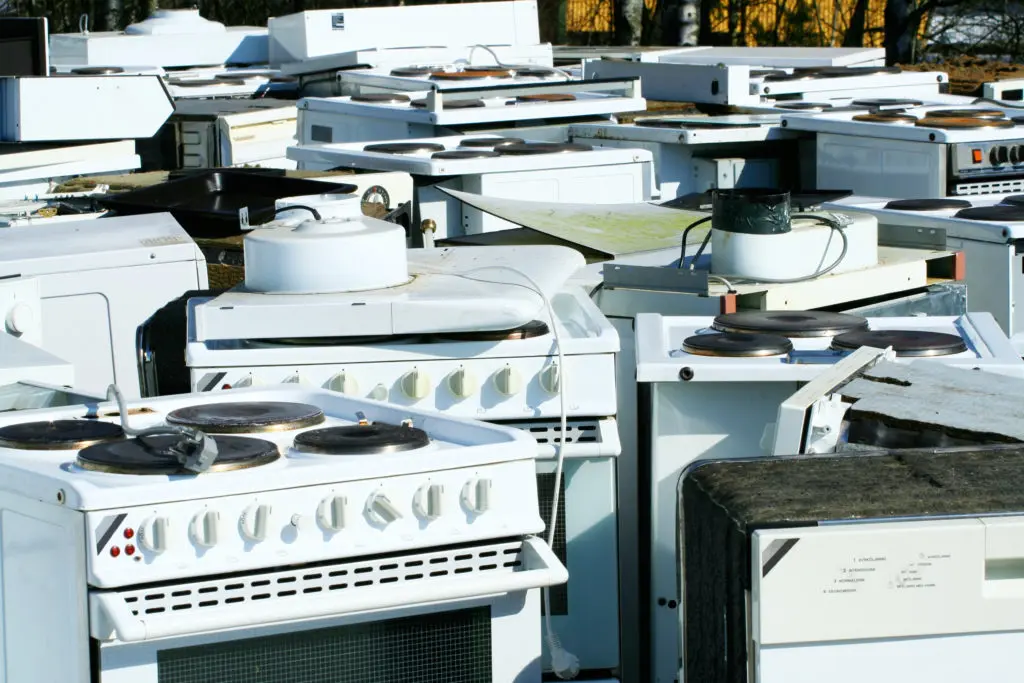
First Step is to Determine the Condition of the Oven or Stove
Does it Still Work?
Before deciding on how to dispose of your old oven or stove, the first step is to assess its condition. If the appliance is still functional or could be easily repaired, it might have value to someone else. Start by testing the major functions—does the stove heat up evenly? Does the oven still bake properly? If everything seems to be working, or if the appliance only requires minor repairs, consider selling it or donating it to someone in need.
Considerations for Selling or Donating:
- Selling: If your oven or stove is in good working condition, you could list it on online marketplaces like Craigslist, Facebook Marketplace, or even local classifieds. Be sure to include clear photos, detailed descriptions, and accurate measurements to attract potential buyers.
- Donating: Many local charities, shelters, or nonprofit organizations accept working appliances. Donating your old oven or stove can be a great way to help others while ensuring the appliance is reused instead of ending up in a landfill. Contact local charities or organizations like Habitat for Humanity to see if they accept appliance donations.
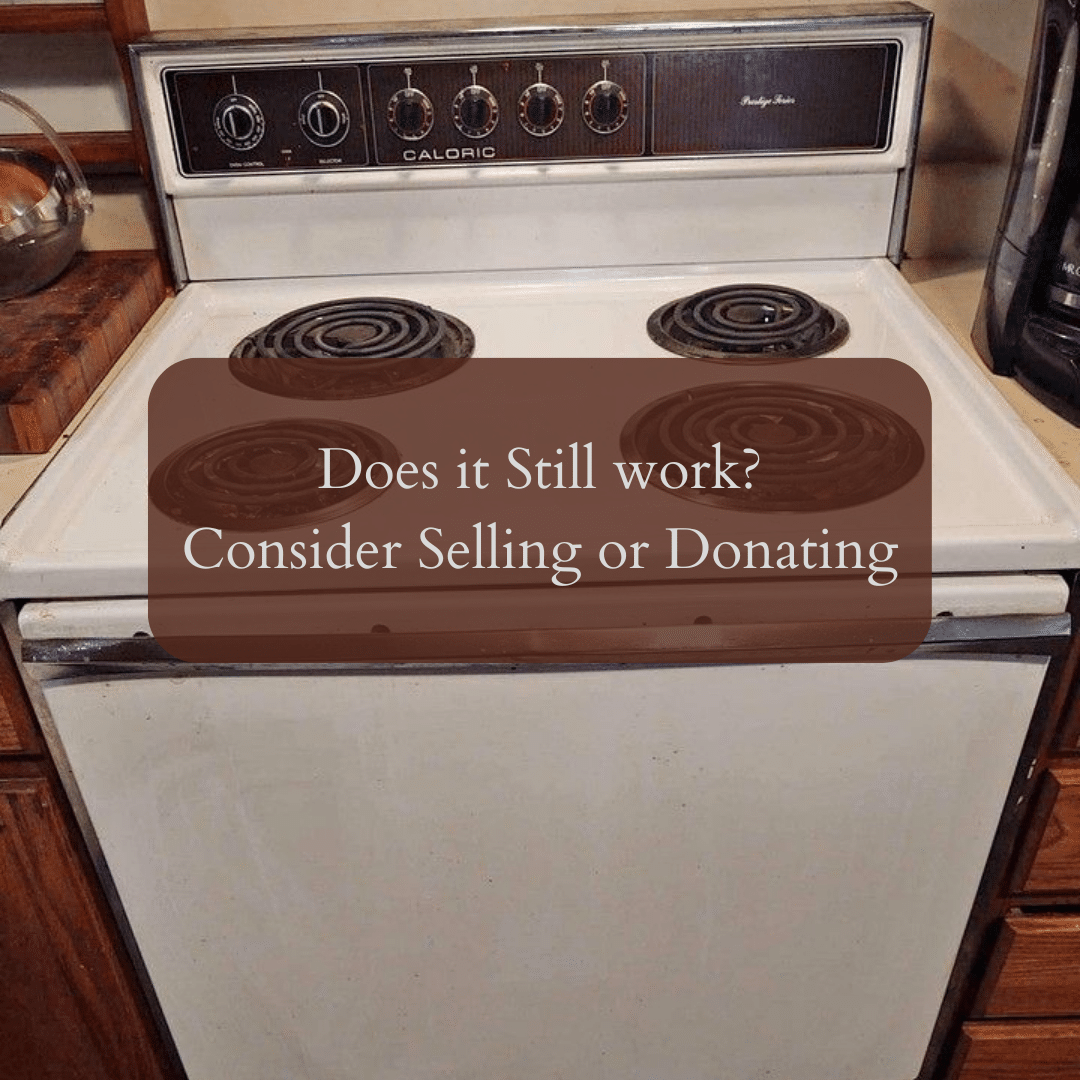
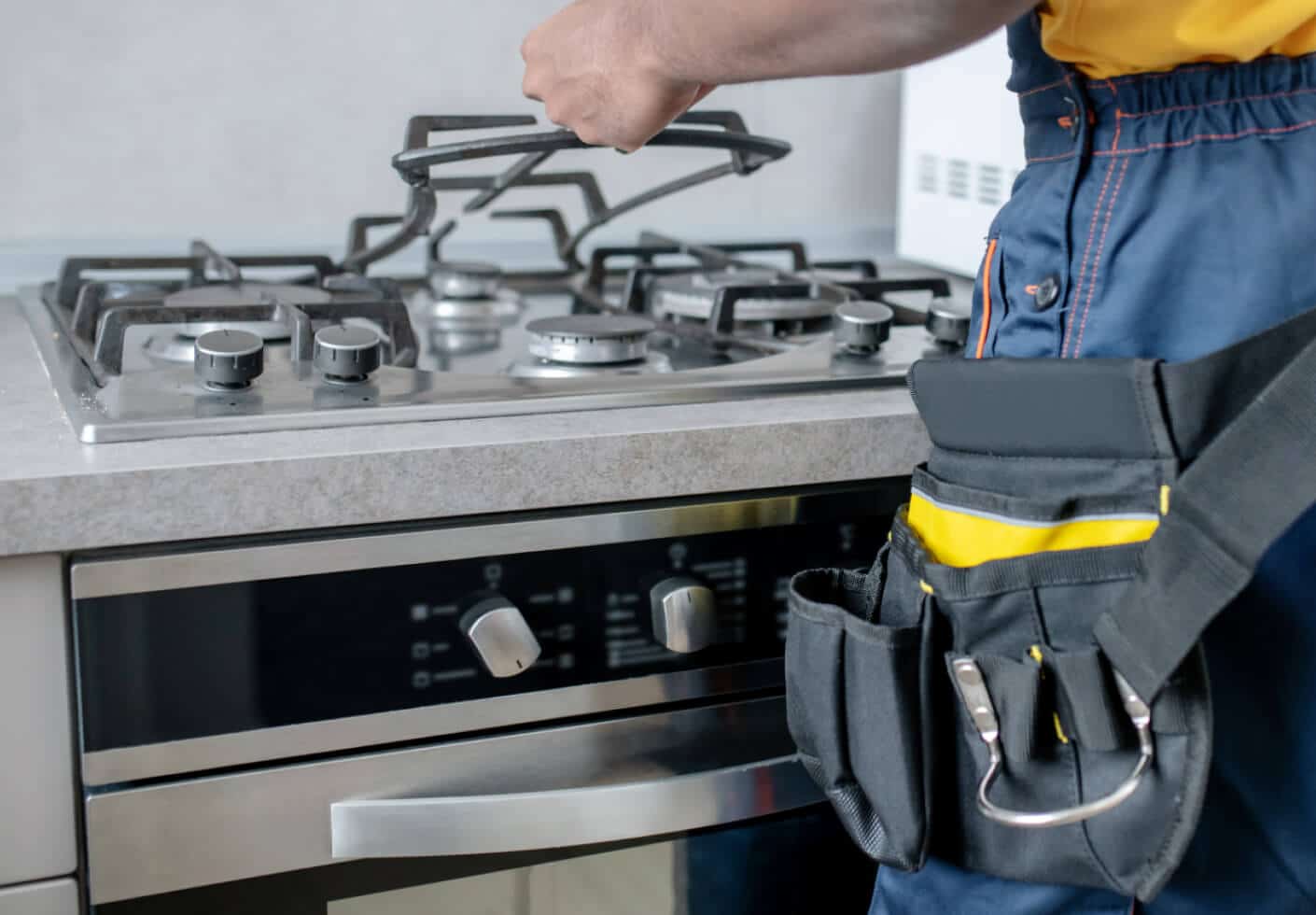
When Repair Isn’t Worth It
If your oven or stove is outdated, inefficient, or requires extensive repairs that would cost more than the appliance’s value, it’s likely time to consider disposal. Signs that your appliance is beyond saving include:
- Age: If your oven or stove is over 10-15 years old, it may not be worth repairing due to outdated technology and energy inefficiency.
- Frequent Repairs: Constantly needing to fix different components is a strong indication that the appliance is nearing the end of its lifespan.
- Inefficiency: Older models tend to use more energy, driving up your utility bills. Newer models are designed to be more energy-efficient, making them a better long-term investment.
By assessing the condition of your old oven or stove, you can make an informed decision on whether to sell, donate, or move forward with disposal. If the appliance is beyond repair or no longer energy-efficient, it’s time to explore responsible disposal options.
What are the Best Disposal Options?
Option 1: Sell or Donate
Selling:
If your oven or stove is still functional, selling it is a great way to recoup some of your investment while giving the appliance a second life. Start by listing it on popular online marketplaces like Craigslist, Facebook Marketplace, or OfferUp. When creating your listing, be sure to include clear, high-quality photos, a detailed description of the appliance’s condition, and any relevant features or specifications. Highlight any recent repairs or maintenance to increase its appeal to potential buyers. Price the appliance competitively by researching similar listings in your area.
Donating:
If you’d rather not sell your old oven or stove, consider donating it to a local charity or nonprofit organization. Many organizations, such as Habitat for Humanity, Goodwill, or local shelters, accept working appliances that can be used to help families in need. Donating is not only a generous way to give back to the community, but it also ensures your appliance stays out of the landfill. Before donating, make sure to clean the appliance thoroughly and confirm that the organization accepts large appliances. Some organizations may even offer free pickup services, making the process even easier for you.
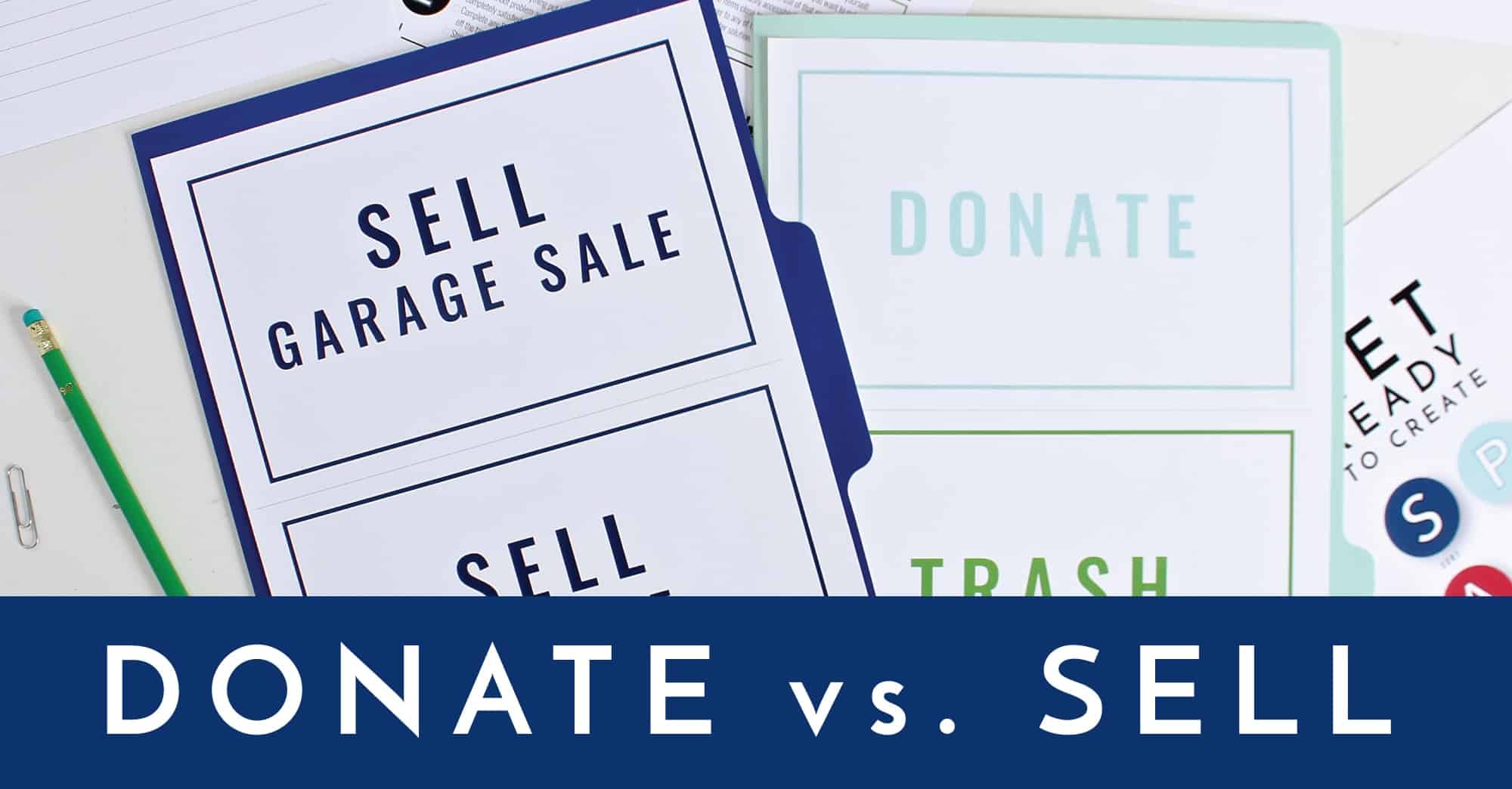
Option 2: Recycling
Scrap Metal Recycling:
Old ovens and stoves are primarily made of metal, making them excellent candidates for recycling. Recycling these appliances allows the metal components to be repurposed, reducing the demand for raw materials and minimizing environmental impact. Many recycling centers accept large appliances, and some may even offer a small payment for the scrap metal. To recycle your old oven or stove, start by contacting local scrap yards or recycling facilities to confirm that they accept the appliance and to inquire about any specific requirements.
Finding a Recycling Facility:
If you’re unsure where to take your old oven or stove for recycling, a quick online search can help you locate certified recycling centers in your area. Websites like Earth911 or the Environmental Protection Agency (EPA) provide directories of recycling facilities across the country. Be sure to check if the facility offers curbside pickup or if you’ll need to transport the appliance yourself. Additionally, some manufacturers and retailers offer take-back programs for old appliances when you purchase a new one.
EPA Guidelines:
The Environmental Protection Agency (EPA) has established guidelines for the safe disposal and recycling of large appliances. These guidelines ensure that hazardous materials, such as refrigerants or mercury, are properly removed before the appliance is recycled. When choosing a recycling facility, look for one that adheres to EPA regulations to ensure your old oven or stove is handled in an environmentally responsible manner.
Option 3: Bulk Trash Pickup
Check Local Regulations:
If selling, donating, or recycling isn’t an option, bulk trash pickup may be the easiest way to dispose of your old oven or stove. Many local waste management services offer bulk pickup for large items, but it’s important to check your local regulations first. Some municipalities require you to schedule a pickup in advance, while others may have designated days for bulk item collection.
Scheduling Pickup:
To schedule a bulk trash pickup, contact your local waste management provider and inquire about their policies for disposing of large appliances. You may need to pay a small fee for the service or obtain a special permit, depending on your location. Before placing the appliance curbside, make sure to disconnect it from any power or gas supply and follow any specific preparation instructions provided by your waste management provider. This may include removing doors or securing loose parts to prevent accidents.
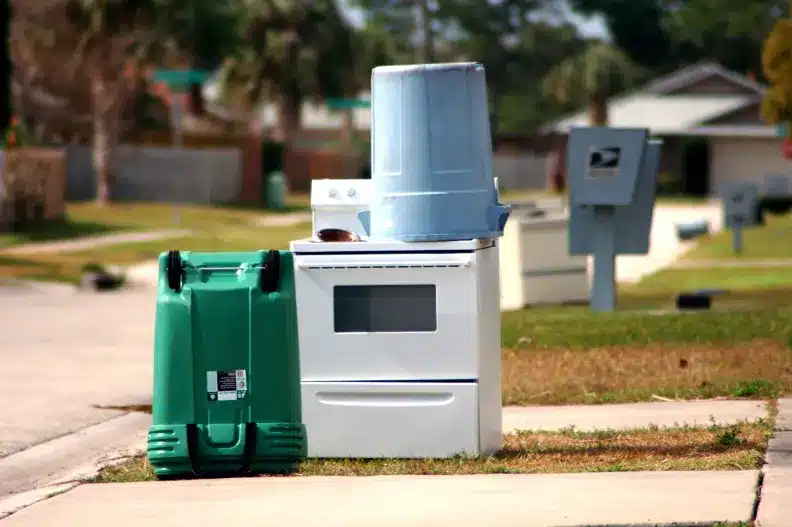
Renting a Dumpster for Disposal
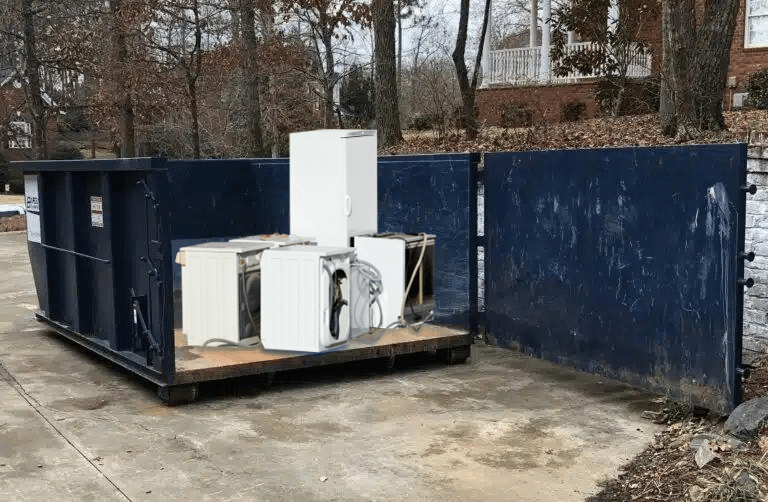
Let's Sum it all Up!
Disposing of an old oven or stove doesn’t have to be complicated if you know your options. Whether you choose to sell, donate, recycle, or rent a dumpster, each method offers a responsible way to handle your appliance's disposal. By taking the time to assess its condition, preparing it safely, and selecting the right disposal method, you ensure that your old appliance is dealt with in a way that’s both efficient and environmentally friendly.
Remember, improper disposal can have serious environmental consequences, so it’s essential to choose a method that aligns with best practices. If you’re unsure of the best course of action, consulting with professionals or using a service like Bargain Dumpster can simplify the process and provide peace of mind.
By disposing of your old oven or stove responsibly, you’re not just clearing out space in your home—you’re also contributing to a cleaner, more sustainable environment. Whether you’re decluttering, renovating, or simply upgrading your kitchen, following these guidelines will help you do it the right way.
Have More Appliances to Get Rid Of?
Click Below for Detailed Disposal Options
Have any additional Questions?
Call us today and we would be happy to walk you through the rental process.

